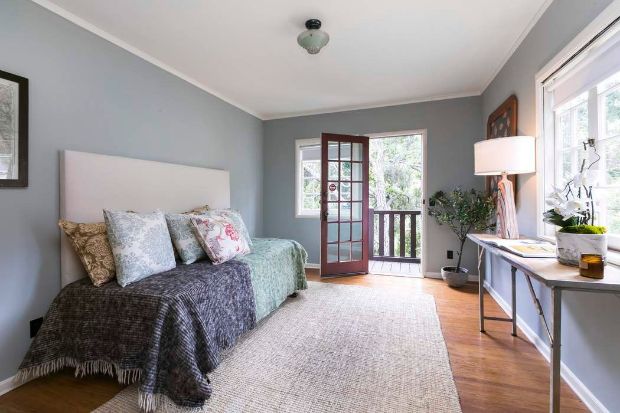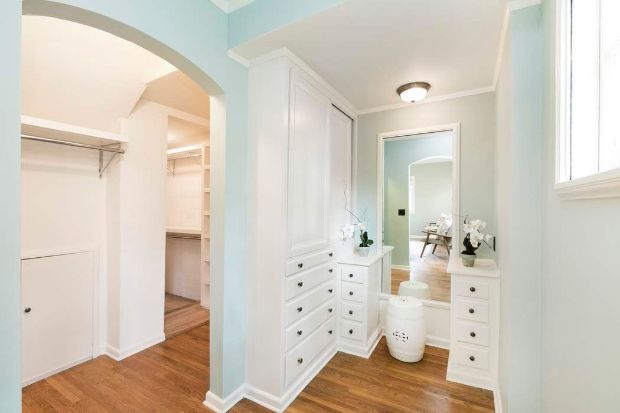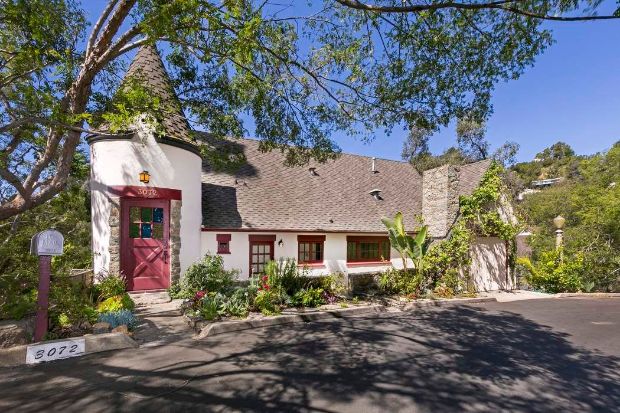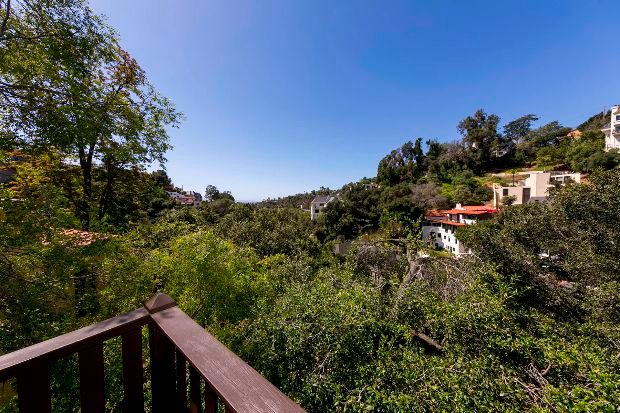The crazy thing about buying a home is that there’s a good chance one day, some day, you will sell it. I always recommend to my clients to rent out their home if they have a sudden life change or a change of heart. But, of course, everyone’s circumstances differ and if you’ve decided the time is right to sell your home you are probably experiencing a whole lot of the feels. Perhaps you have to move cities for work, or you are going from your starter home to your dream home and need to sell your current digs to see how much you can afford in your new place. Or maybe the time just feels right, the market is hot, and you want a piece of the pie. In any case you are probably feeling an amalgam of excitement, some nostalgic sadness, and plenty of anxiety. Chief among your concerns though is probably your desire to sell your house for more, sometimes much more, than what you paid for it.

Selling your home can be overwhelming, but here’s the thing: you do not have to experience this life change alone. You know what you need to make this process as stress-free a transition as possible? A great listing agent. And even in a white-hot real estate market like Los Angeles, not all listing agents are created equal.
Your listing agent is the one who will cover the deal’s financials, like setting a listing price and marketing, staging, and making repairs to your house. He or she can also help you navigate more personal issues, such as your timeline, and what you’re hoping to achieve with the sale. For all of those reasons and more, it’s crazy important to find an expert who is right for you and your specific situation, and who can help you get what you want. Here’s how.

Know What You Want & Interview Prospective Agents
It’s important to have a clear sense of what you want to get out of the selling process. When so much money is on the table, it’s crucial to know what your goals are, so that you can find an agent who is on the same page.
Your listing agent will:
- Work with you to price your home
-
- First, know, generally speaking, what your property is worth. Do your own research on the prices of local comps, check out your neighborhood’s home sells. Look at houses similar to yours (bedrooms, bathrooms, square feet, lot size, etc.). Second, run your info by your agent and have a discussion about the pricing information on homes he or she has recently sold. Specifically, what the differences were between their listing prices and how much the homes ultimately sold for. When it comes to the agent’s pricing history, you’re looking for accuracy. You’re also hoping for home’s that sold above their listing price, not below. Anyone could suggest a high price for your home, knowing it’s what you’d like to hear. But nobody (especially you) wants to have a house languish on the market, or to reduce a price repeatedly. Look at the property history. Do you see several price reductions? That’s not a good sign.
- The short answer about setting your home’s asking price is that you will need to trust your agent to recommend a smart and savvy listing price.
-
- Market your home
- You want an agent who will be able to get the word out about your home as much as possible. Barring shouting from the rooftops, there’s many new and innovative ways listing agents are marketing homes these days. Uing a combination of old-school (but powerful) marketing techniques — such as direct mail, signage, and open houses — and the modern methods like social media, campaign drips, lead forms, and more. Savvy agents will post pics of your house on Instagram, Facebook, Twitter, and any other platform that can get likes plus the attention of other real estate agents who can bring buyers to the table. Another great thing to look for is press. Has the agent’s listings been picked up as an LA Times Hot Property? Or did Curbed LA feature their house in a blog post?
- Negotiate with home buyers
- When offers start coming in (and if your agent has excelled at pricing your home and marketing it), your agent will negotiate with buyers and their agents on not only the sale price but also on what contingencies, if any, are attached to the contract. As with any negotiation, there could be some stressful, fraught moments with the buyers. You’ll want an agent who can step up for you, and who has a negotiation style that can help put you at ease.
- Usher the home sale through inspection and close the deal
- Once you’ve signed a purchase agreement with a buyer (woo-hoo!), your agent will help you navigate the sale’s remaining steps. This includes negotiating home repair requests post inspection and dealing with any last-minute surprises before closing. Which can and do happen!
The average listing agent does all of the above. An amazing listing agent does all of the above and also inspiring your confidence and calm — that they’re getting the best price for you, and that they’re representing you and your home like no other agent could.
So, let’s talk about how to find and hire that kind of amazing agent.

Ask These Questions to Find a Great Listing Agent
Ideally you should aim to hire a listing agent six to eight weeks — or more — before the day your house is listed on the marke. You’ll be grateful for the cushion, especially if the agent you ultimately hire recommends that you make repairs or upgrades to your home before it’s listed.
To find prospective agents, start with your network. Ask friends, relatives, neighbors, and colleagues for recommendations. Word-of-mouth endorsements, as always, can be priceless.You can also turn to another trusted friend: the internet. Three out of four home sellers only contact one candidate before picking their listing agent. While that may be the norm, it’s smarter to shop around. Interview at least three agents before deciding on the one you want to work with.
During the interviews, ask these questions to help assess whether an agent is the right fit you:
- Do you work as an agent full-time? Like most professions, experience is no guarantee of skill. That said, much of real estate is learned on the job.
- How long have you been in the business? Generally, the more experience an agent has, the more they’re tapped into the local market.
- How many homes have you sold in my neighborhood in the past year? You don’t need to find an agent who specializes only in your community, though that would be ideal. You do want someone who has recently sold at least a few homes in your neighborhood and knows the local and hyper-local inventory.
- What’s the typical price range of homes you sell? Most agents work across multiple price points, but you don’t want an agent who has never sold a home in your range.
- What’s your fee? An agent should be able to articulate their value and explain their commission rate.
- How will you market my home? You don’t want to hire someone who’s just going to stick a For Sale sign in your yard and call it a day. The agent should present a comprehensive marketing plan for your listing — this should include strategies for staging your home, taking professional photographs of your home, promoting the listing on social media, marketing to other brokers, scheduling open houses, etc.
- Will I be working with you directly, or with a team? Some agents lead or work as part of a sales team. The lead listing agent shares client responsibilities with other agents. Where one agent may handle private showings for a listing, another may host open houses. A benefit is that for the same fee, you get many people working for you. But if you want the sole attention of the listing agent, you may want to stick to a one-on-one arrangement.
- Will you provide one-on-one service? Whether you’re working with one agent or a team, ask how responsive they can be to you, your timeline, and your goals.
- How long on average are your listings on market? Your average sold-to-list price? This can help you suss out whether the agent is a solid marketer and negotiator. These are real estate stats that the agent can pull from your local multiple listing service, or MLS.
tl;dr: It’s in your best interest to pick an agent who understands your goals, fits your personality, and can get your home sold at the best possible price. And maybe to have a laugh or two with. When you meet someone who can offer all of the above, congratulations — you’ve found your listing agent.

First Thing: Know What You’re Signing up For
Now that you know what you’re getting when you find the right listing agent, let’s make sure you know what you’re committing to when you sign that agent’s “representation agreement.”
The most common type of representation agreement is the exclusive right-to-sell agreement — a legally binding contract that states you’re going to use that agent to sell your house. Under this agreement, you’re giving the agent (and the agent’s brokerage) the right to sell the home for a mutually agreed-upon time period and compensation. Other common terms include the agent’s duties to you, like marketing, and a dispute resolution plan.
Every contract has an expiration date, but the length of the contract can vary. Some are three months; others six months. It all depends on what you and the agent agree upon. If the contract expires before your house is sold, you can re-list your home with another agent. And, let’s be honest, if your home has taken over six months to sell in Los Angeles, you should definitely jump ship and begin the process again. Of course, there is a chance you sign an exclusive listing agreement but you just aren’t satisfied with the job your agent is doing. To protect yourself, make sure the representation agreement has a cancellation or termination clause that lets you void the contract before the expiration date without any financial penalty.

Understand How a Listing Agent Gets Paid
Real estate commissions — including the listing agent’s commission — are typically charged as a percentage of the home’s sales price. For example, on a $1,000,000 house, a 6% commission would cost $60,000. Commissions are negotiable. The commission is usually split between the listing agent and the buyer’s agent as well as their respective brokers.
A caveat: If an agent represents the seller and the buyer, the agent becomes a dual agent and earns both sides of the commission. In dual agency, you may have more room to negotiate the rate — just keep in mind that you’re not being represented exclusively as you are in single agency.
The listing agent’s commission fee often covers the cost of professional photos, marketing and marketing materials, and any administrative fees charged by the agent’s brokerage. Amazing agents — with their industry knowledge, awesome photography, HGTV-worthy staging tricks, and marketing expertise — are essential in the selling of your digs.
So, if you’ve read all of the above, you’ve done your homework to find a great agent. Now you’re ready to sell that house.